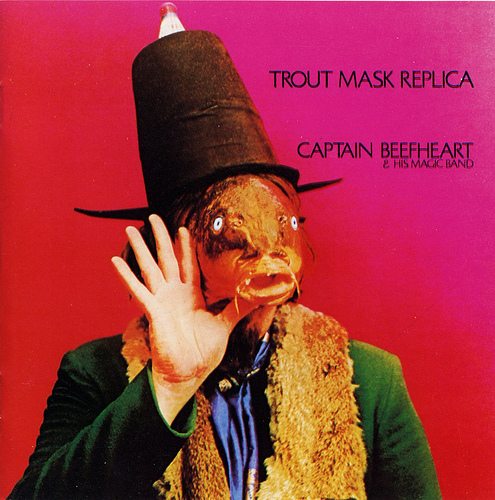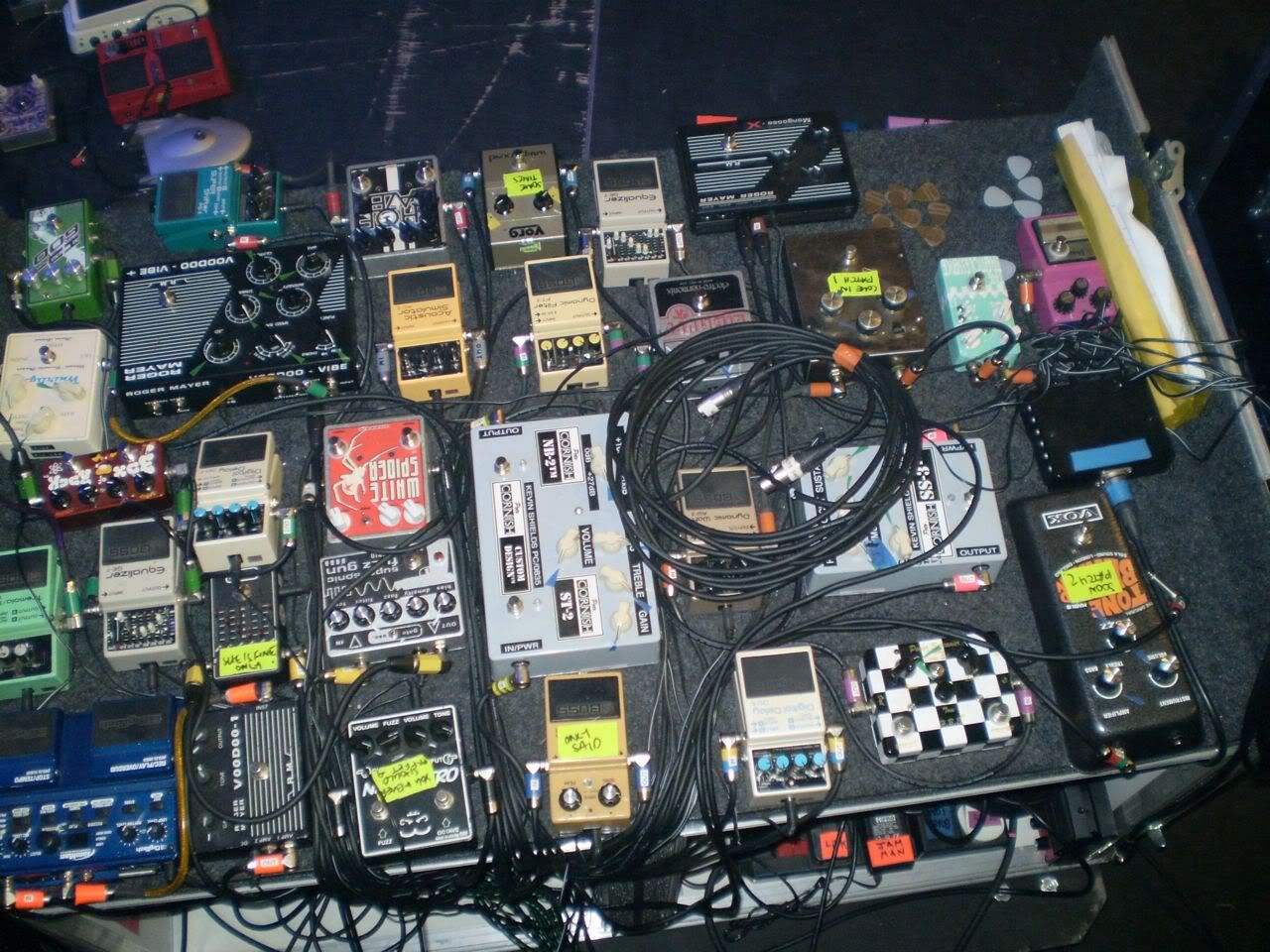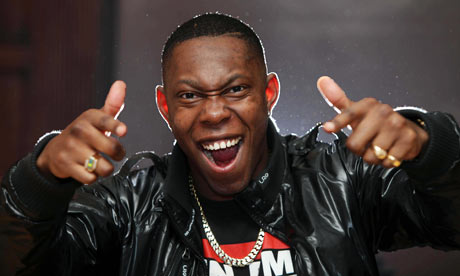
As I explained in
my last post, the late fall frequently finds me seeking a little distance from the outside world. While this is usually accomplished by adopting a new hobby or subcultural fascination, I just as often self-impose arbitrary & unrealistic deadlines for mammoth projects - as though Death's icy grip will close faster around my throat if I don't release two albums and a 7" by New Year's Eve. Perhaps I'm terrified of being without braggable exploits during the inevitable holiday reunions with old acquaintances. On the other hand, if I manage total consistency for another decade, what is underwhelming now will have become gloriously eccentric: an artsy polymath circa 30, without a stable income since his early twenties, is just some pseudo-bohemian loser - but when you're knocking on 40's door, dude, you're
Daniel Higgs.
I digress. The point is that, several months ago, I sat down and assigned myself several large projects with little chance they'd all be completed by the late-December cutoff. What's amazing is that I
might actually succeed.
- After intermittent recording over the autumn, my band finally completed an album's worth of demos, from which we selected a well-matched pair of songs for a quick 'n' gritty 7" single; I placed the order with the pressing plant yesterday, in time to get the test pressings back before Christmas.
- What started as a sonic sketchbook of improvised production exercises somehow coalesced into an album. I should have it pressed up in time for a run of shows coming next week, though I'm not sure if a bunch of post-hardcore kids & aging alts will be very interested in my bogus Frippery. Maybe Kranky will release it and I can start doing improv gigs with Fennesz.
- Meanwhile, I overstepped my musical bounds by several strides and decided to *ahem* make beats. This was largely out of frustration with the likes of Doom, Madlib, and Oh No, whose releases are maddeningly half-brilliant, half-baked. Instead of groaning when a banger like "Gazillion Ear" is followed up by filler like "Ballskin", why not just stitch together a solid 30 minutes of samples that I already like?
Only that last project is unlikely to see light before year's end, but at least sample-splicing and beat-tweaking will keep me busy during the dull moments of the holiday season.

Consequently, my ears have been worked into callused stumps. Demo recording was especially exciting and excrutiating: what could've been a no-frills rehearsal recording ballooned into a kitchen-sink production exercise. I suspect this was because our bassist (the veteran of the band) was "auditioning" me to engineer our album when we record in earnest next year; more likely, though, no one had a clue what "our sound" is. ("This song is kinda
PiL-ish, but
that song should sound like a track from
Goo.") To accomodate diverse stylistic demands, from song to song I aped different engineer's signature styles - some
Alan Moulder here, a dash of
Andy Johns there, and more than a little
Steve Albini throughout. This was made difficult by a paltry selection of microphones and a limited number of inputs. Alone, either one of these doesn't hopelessly hamstring a recording. After all, The Beatles & George Martin were able to craft
Sgt. Pepper's on four tracks - but they had several-thousand-dollar microphones and outboard gear almost worth killing for. Conversely, Slayer's epic
Reign In Blood was recorded almost entirely with
cheap, small-diaphragm dynamic mics - but with 24 tracks all blazing at once. I, on the other hand, was trying to siphon torrents of sound through a bunch of Beta-57s into 8 tracks - not quite as difficult as trying to part the Red Sea with a teaspoon & a paper fan, but almost.
Excuses aside, everyone was (mercifully) pleased with the results.

As maddening as handicapped recording sessions can be, they stage incredible games of mental chess. Technical limitations force ingenuity, while inspiring "what if?" scenarios for the next step. For example, now that I've managed to achieve a decent three-mic drum sound, will I record the drums differently when I have 16 simultaneous inputs available? Would an
ORTF stereo pair or an
M-S setup sound better in this room? Why not run the bass through a Marshall and the guitar through an Ampeg?
The process provoked me to revisit my old recording textbooks, not to mention it's given me renewed concentration as a music listener. Studying every whisper & crash that comes out of my speakers has reminded me of the oft-forgotten distinction between engineering and production: engineering is material, the nuts-'n'-bolts mechanical documentation of a sound, whereas production is metaphysical, the sculpture of music's intangible qualities. The two are commonly confused, if only because it's tempting to assign why music moves us emotionally to its material qualities.
Take
Steely Dan, a band renowned for their meticulously-constructed records which sound as clear & smooth as a fine Scotch. I've always found them
too clinical, distant, dull. Presumably, Becker & Fagen don't mean their music to have all the vitality of a dead sturgeon, so as productions, are they failures?
Meanwhile, there's plenty of deliberately ugly music out there - from black metal's treble-heavy buzz to the speaker-exploding grit of
Brainbombs or the Psychic Paramount. While such records are ostensibly examples of "bad recording," it's obvious that these acts
want to sound repellent, and their audial odiousness is the very reason why some listeners love them and others loathe them. Thus, as productions, does such music succeed even when repulsing a portion of its audience?
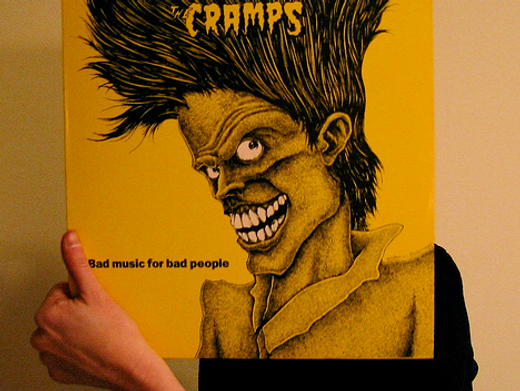
Clearly, cleaving between engineering & production is so difficult because the two are entwined, each serving to support or spoil the other. Those krautrock classics by Neu, Kraftwerk, and Ashra inspire visions of a futurist technotopia so effortlessly because of their painstaking, state-of-the-art construction. Likewise, the Wu-Tang Clan's debut remains a touchstone of rough, streetwise hip-hop because it
sounds rougher than a spiked bat.
Ah, but what's missing from the equation?
The performance, the very thing being documented. A good performance is immediate & unmistakable; it almost requires concerted effort to record a strong performer
so badly that no one would listen to it. The engineer's job is to prepare the physical environment & tools necessary to capture a good performance, whereas the producer's job is to
enable a good performance. The producer is the architect of the soundworld in which the performer will be most at home. This may sounds nebulous & variegated, because
it is, which is why no two producers work in precisely the same fashion. Many performers produce themselves, feeling (sometimes erroneously) that outside influence only interferes. Some producers are technical taskmasters, detail-oriented
drill sergeants; others, like Rick Rubin, are closer to "life coaches," therapist-cum-sycophants who coax & cajole performers into their comfort zone. Arguably the most interesting are those producers who purposefully
antagonize & nettle the performers, aware that certain artists thrive on adversity & discomfort.
So with everything that goes into a recording, it's galling that there are musicians who I don't feel have ever been produced perfectly. I don't necessarily mean "recorded badly" in that it sounds like a shit-caked dictaphone, but rather the artist was framed in a soundworld where they were
not at home. As much as I adore Bowie's Berlin trilogy, those albums have always sounded a bit flat & musty, like old cardboard, as though the whole band was
crammed into a single three-meter-wide, drywalled room.
Station To Station is much more effectively layered in its arrangements, though musically it's nowhere near as coherent or compelling. I've also never been entirely satisfied with how The Fall or Sonic Youth have been recorded. They each came close to finding their pitch-perfect space for a single album in the '80s (
The Wonderful and Frightening World and
EVOL respectively), but sadly got lost again afterward. When they finally arrived (
Fall Heads Roll and
Washing Machine), their most striking innovations were long behind them.
At any rate, below is a mix of songs that, to me, strike the perfect balance between a strong performance and engineering that serves to create a distinctive, vivid soundworld.
Master Sculptors1. Brian Eno - "Sky Saw"
2. Ashra - "77 Slightly Delayed"
3. D'Angelo - "Playa Playa"
4. Can - "Oh Yeah"
5. Wu-Tang Clan - "Bring Da Ruckus"
6. Nino Rota - "O Venezia, Venega, Venusia"
7. Bachi Da Pietra - "Altri Guasti"
8. The Jesus Lizard - "Seasick"
9. Scott Walker - "Clara"
10. My Bloody Valentine - "Come In Alone"
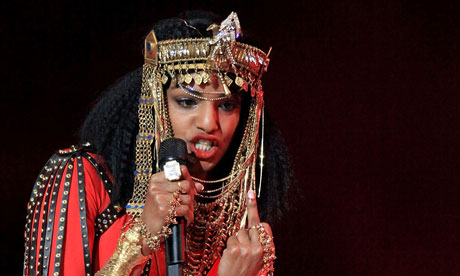 Am I obliged to comment on M.I.A.'s "finger malfunction" because my most popular post ever - by a factor of over four times its closest competitor - is my 2010 takedown of her pop-provocateur persona? Because, like, I've got shit to do besides rehash two-year-old quarrels of stage-managed mischief.
Am I obliged to comment on M.I.A.'s "finger malfunction" because my most popular post ever - by a factor of over four times its closest competitor - is my 2010 takedown of her pop-provocateur persona? Because, like, I've got shit to do besides rehash two-year-old quarrels of stage-managed mischief. Boom! Ain't no equivocatin' when you're telling someone to fuck off.
Boom! Ain't no equivocatin' when you're telling someone to fuck off.

















